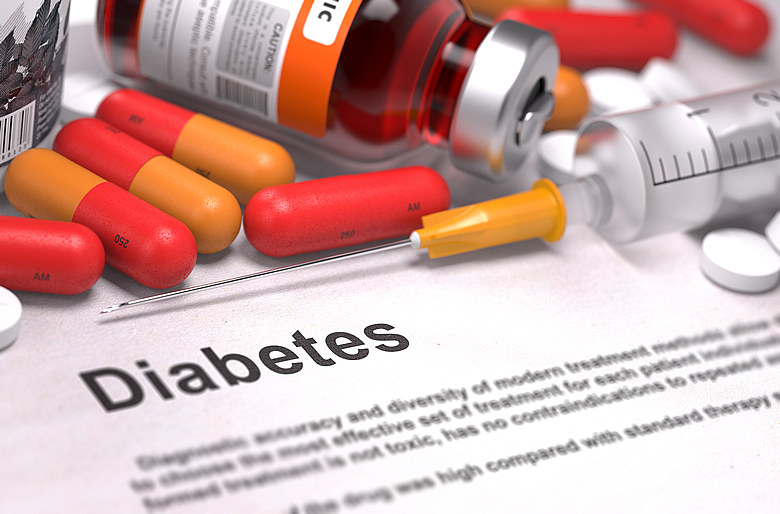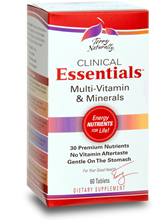Diabetes Is Optional

Diabetes is an increasingly common problem. It bears noting that in countries with non-westernized diets, diabetes is essentially unheard of — until the diet changes to high sugar and low fiber. Because of this, diabetes is largely a disease caused by our modern diet. Shockingly, it's now estimated that one third of adults will get adult-onset diabetes.
But again, that it used to be so rare yet now so prevalent strongly suggests that diabetes is optional! However, a remarkable new herb, called Hintonia Latiflora (available in the US as Sucontral D by EuroPharma), has been shown in over 10 studies to be remarkably effective in helping with diabetes (more on this below)!
Have family or (even Facebook) friends with diabetes? Please share this important article with them. It may save their lives!
What Is Diabetes?
Our bodies make sugar as a fuel for our cell's energy furnaces. It releases it at constant low levels. Releasing too much at once is like flooding the engine in your car with too much gas. It makes it stall out.
For most of human history, we've had a high-fiber diet. This resulted in the carbohydrates and sugars in our diet being released very slowly and steadily into the bloodstream over many hours. Now each of us consumes nearly 140 pounds of sugar per year because of the sugar that's added to our diet from food processing. That represents 18% of our calories, causing massive spikes in blood sugar. Our bodies react to this by working to prevent sugar from entering cells too quickly. This condition is called "insulin resistance."
Insulin is the key that opens our cell furnaces to allow sugar to enter and be burned for energy. When your cells become deaf to the insulin, sugar builds up in your bloodstream instead. Unable to feed your cells with sugar, your cells begin to starve.
The result of insulin resistance? Your cells signal your body that they're energy starved, which causes your body to produce more sugar and more insulin. These high insulin levels then proceed to turn the sugar into fat, causing you to pack on the pounds and become even more insulin resistant (thus the "spare tire" around your belly). The cycle continues until your body can no longer compensate and your blood sugar goes up. At that point you develop diabetes — and your doctor offers you whatever newest, most profitable, and sadly often toxic medication the drug companies market to them.
Why Do We Have a Diabetes Epidemic?
Several factors are creating a perfect storm for developing diabetes. These include:
- Excess sugar and white flour combined with low fiber, an unhealthy mix prevalent in the modern diet.
- Vitamin D deficiency, especially from the misguided advice to avoid sunshine. Sunshine makes vitamin D in our body. Low vitamin D is associated with not only diabetes, but also a markedly increased risk for autoimmune illness, pain, cancer, hypertension and other problems.
- Society's growing obesity epidemic.
- Decreased exercise.
- Numerous chemicals in our environment that block testosterone in men and increase testosterone in women. Inadequate testosterone levels in men (research suggests this is anything under 500 ng/dl, contrary to the absurd "normal range" most physicians recognize) have been shown to be associated with metabolic syndrome. This is a combination of high blood pressure, high cholesterol, and either diabetes or prediabetes. When you see a "spare tire" developing on a gentleman's abdomen, this is often the culprit. In women, elevated testosterone causes diabetes, and is often associated with polycystic ovarian syndrome (PCOS), acne, facial hair growth, and even infertility. Metabolic syndrome improves with the treatments discussed below.
Testing
To screen for prediabetes, you should have yourself tested for a fasting insulin level. Ignore the normal range. If your fasting insulin is over 10 uIU/ml, you should take measures now for prevention. You should also check your glycosylated hemoglobin (HgBA1C). If it's over 5.8%, you may be developing prediabetes.
Diabetes Is Optional
In fact, this is the title of my book on Amazon. It discusses the treatments I show below in much greater detail.
Begin with simple things that help optimize blood sugar levels in your body. These include:
An Ounce of Prevention
To help your body maintain healthy blood sugar regulation:
- Take a good multivitamin high in magnesium and vitamin D. My favorites are the Energy Revitalization System vitamin powder or Clinical Essentials.
- Cut back on your sugar intake. This doesn't mean you can't indulge your sweet tooth. In fact, chocolate in moderation is a health food. Begin by cutting out sodas and fruit juices, both of which have ¾ teaspoon of sugar per ounce. That translates to 36 spoons of sugar in that 48 ounce "Big Burp" soda! Enjoy a whole fruit instead. Meanwhile, look at the nutritional label and divide the grams of sugar by 4 to see how many teaspoons of sugar are in a serving.
- Go for walks in the sunshine. Or find other exercise, preferably outside, that you love.
- Lose weight. This will be easier once you do the rest of the program and your insulin sensitivity improves. Research has shown that with adequate weight loss, diabetes actually goes away in 86% of diabetics.
- Men should optimize their testosterone levels. Use bioidentical testosterone to bring the total testosterone up to about 900 ng/dl. Woman should use the approaches discussed in this article, along with the medications metformin and Aldactone to lower elevated testosterone.
Treating Diabetes
With childhood diabetes, which is a totally different autoimmune illness, insulin is a lifesaving and necessary treatment. But in adult diabetics, it's a "loan shark." Because although it initially lowers blood sugar, it often causes massive weight gain, which can worsen diabetes in the long term. It may be necessary short term, but it isn't a good long-term solution.
In my 40 years as a physician, I've found that most diabetes medications turn out to cause more harm and deaths than benefit. Yet routinely, physicians are not made aware of the research on the drug's toxicity until after its lucrative patent expires and the medication is no longer profitable. And then the drug companies simply move on to marketing their next money-making diabetes medication.
I don't fault drug companies for this. They're actually very nice people doing their job. Which is to make money. It's the physician's responsibility to distinguish between what's real and truthful as opposed to slick advertising masquerading as science. But sadly, though exhorted to do so even by the past editors of the New England Journal of Medicine, too many don't realize the difference.
There's one medication that's an exception. It's an excellent, low-cost, medication called metformin, and its efficacy has withstood the test of time. It's highly effective and well-tolerated. Its main toxicity is that it will sometimes cause nausea or diarrhea (if so, lower the dose) and will routinely cause vitamin B12 deficiency. So you need to compensate by taking a multivitamin while you're on it.
Hintonia Latiflora to the Rescue
From the high mountains of Central and South America, there is an amazing herb that can help lower blood sugars. This miracle botanical is an extract of the bark of a shrubby tree that grows in the Sonoran Desert. It's been studied in detail for its ability to reverse high blood sugars for over 60 years. It only recently become available to the North American public in a product called Sucontral D™. Over a dozen studies have shown how powerfully effective hintonia is!
How Hintonia Latiflora (Sucontral D) Works
First, it's a rich source of a special family of flavonoids called Coutareagenin. This polyphenol nutrient is found in bark extracts unique to hintonia and appears to be responsible for many of its blood-sugar controlling benefits.
Mexican researchers also found that this plant is an inhibitor of the enzyme alpha-glucosidase, which slows the breakdown of carbohydrates in food, thereby mimicking the effect of a high-fiber diet.
What Research on Hintonia Shows
Solid research in numerous studies shows that hintonia can help control blood sugar and overcome insulin resistance, reducing your need for pharmaceuticals. It can also enhance the effectiveness of diabetes medications if your doctor and you decide that you need them.
For example, in a study published in the German journal Naturheilpraxis mit Naturalmedizin (Naturopathic Practice with Natural Medicine), Hintonia latiflora significantly lowered HgBA1C values (average levels of blood sugar), fasting glucose levels (blood sugar before a meal), and postprandial (after eating) blood sugar levels.
Fasting and after-meal blood glucose numbers, along with A1C levels, are important because they show how much sugar circulates through your system and how your body deals with it after meals. What the research showed was amazing! Fasting and post-meal blood sugars improved by an impressive 23% and 24% respectively with hintonia. And glycosylated hemoglobin decreased by a remarkable average of 0.8 points (about 11%)! This resulted in many diabetics becoming no longer diabetic.
Impressively, by the end of the study 39% of those using anti-diabetes drugs could reduce their medication levels. Some were able to stop their medication entirely.
But there is more good news. Hintonia not only lowered blood sugar and often reversed diabetes, over time it also reduced many of the symptoms of diabetes by an impressive 73%. This is a massive change that can dramatically increase your quality of life and well-being.
Participants also saw improvements in blood pressure, lipids and liver values.
Diabetics struggle with blood sugars that spike and plummet throughout the day and night. As this occurs, your energy, pain and mental clarity may find themselves on a roller coaster as well. One of hintonia's greatest benefits is that it helps keep those sugars steady, making life easier and contributing to long-term better glucose control.
The president of the International Diabetes Foundation was the lead author on another study that strongly recommended the use of this unique herb in treating and preventing Type 2 diabetes. Not only because of improved blood sugar control, but also because of its effectiveness in lowering cholesterol and other elements of metabolic syndrome that can lead to Type 2 diabetes.
So, the bottom line? Diabetes is optional!

Jacob Teitelbaum, M.D. is one of the world's leading integrative medical authorities on fibromyalgia and chronic fatigue. He is the lead author of eight research studies on their effective treatments, and has published numerous health & wellness books, including the bestseller on fibromyalgia From Fatigued to Fantastic! and The Fatigue and Fibromyalgia Solution. His newest book (June 10, 2024) is You Can Heal From Long COVID. Dr. Teitelbaum is one of the most frequently quoted fibromyalgia experts in the world and appears often as a guest on news and talk shows nationwide including Good Morning America, The Dr. Oz Show, Oprah & Friends, CNN, and Fox News Health.



